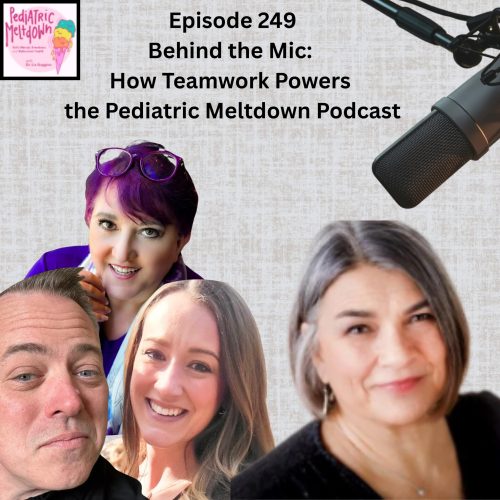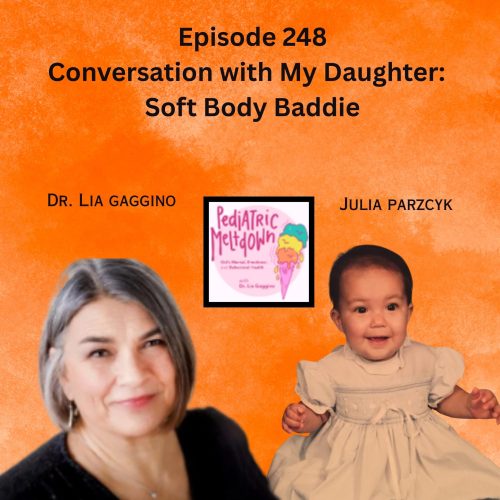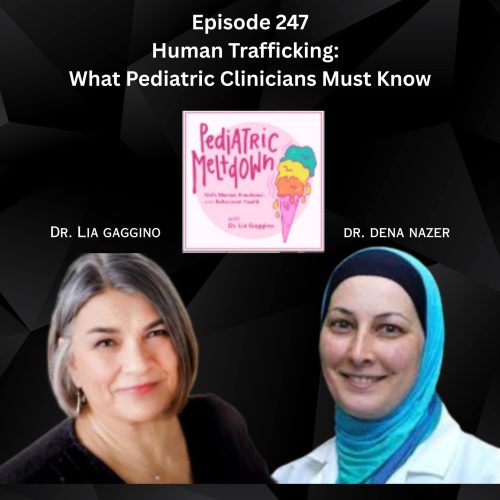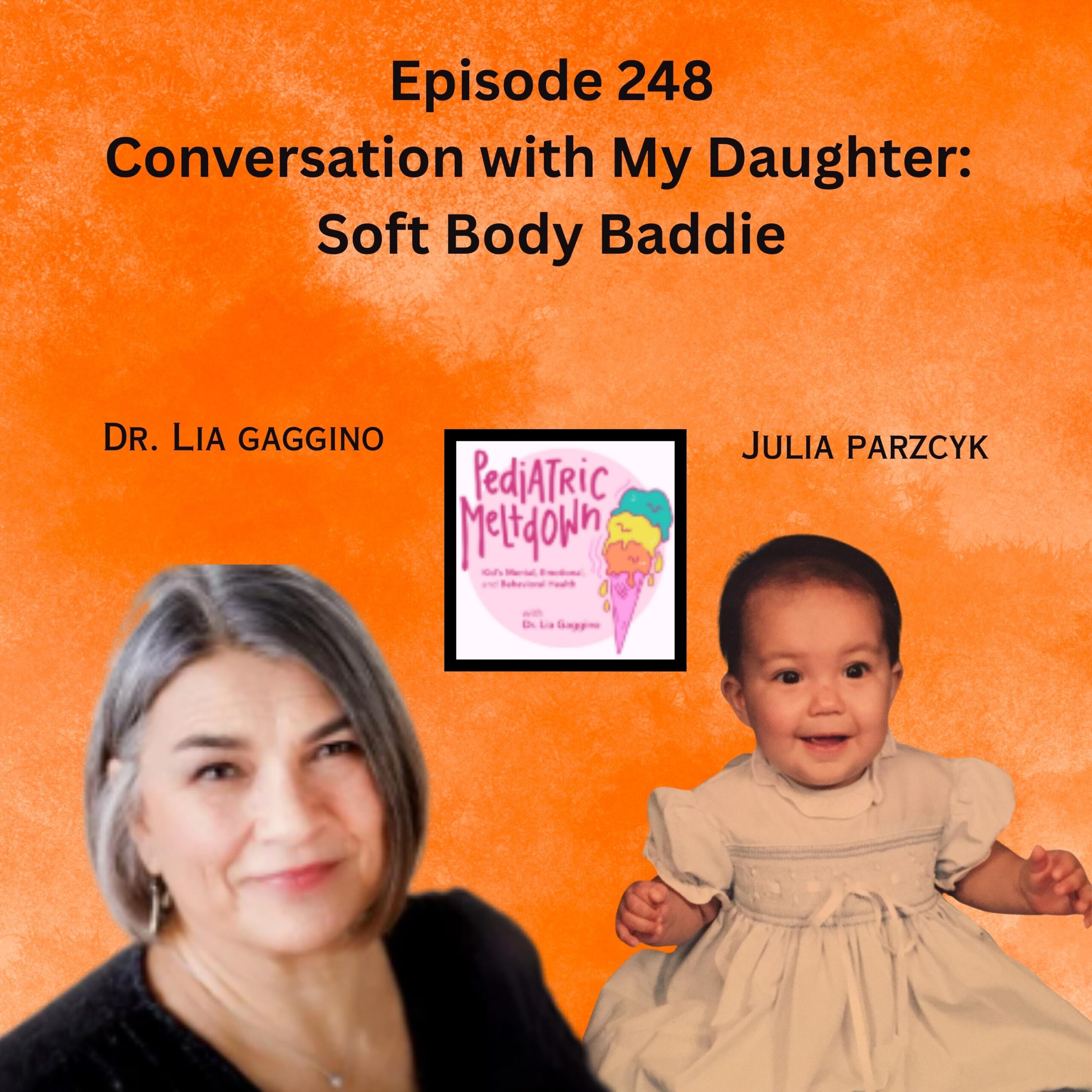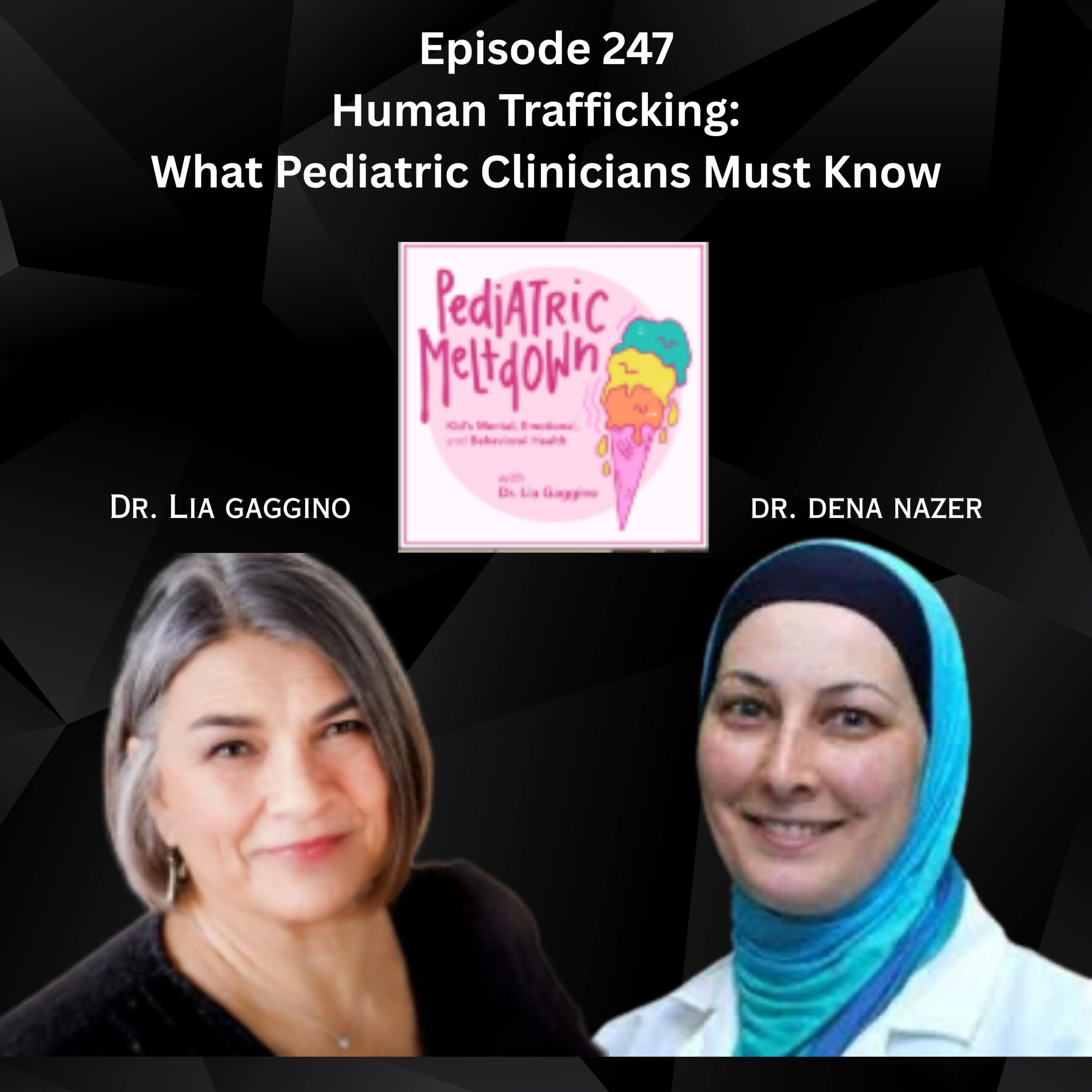Dr. Lia Gaggino asks pediatric neurologist Dr. Sarah Dixon some interesting questions about a phenomenon called “TikTok Tics”. Ever hear of it?? Yeah…. Me either. But it is, indeed, a real thing. We’ve all seen TV shows or movies where someone with Tourette’s spews out a string of curse words and many people think that is the definitive symptom of the disorder. It is more complicated than that. Dr. Dixon talks about the different types of tic disorders and offers up some good news for kids and their parents who are struggling with the challenges of tics that most tics will fade away.
[00:33 -19:24] Understanding Tik Tok Tics
- They are commonly seen in older adolescents developing tics for the first time.
- These movements have previously been referred to as “functional tics.”
- They fall under the larger umbrella diagnosis of “functional neurologic disorder” (FND)
- FND is a subconscious habit-driven or learned behavior that causes distress or diminishes quality of life.
[19:25- 24:03] Understanding Functional Neurologic Disorder (FND)
- FND is not associated with structural, chemical, or electrical neurologic disorders.
- It represents an abnormally learned motor plan.
- FND often affects children who are skilled at quickly learning motor or academic tasks.
- Treatment includes cognitive behavioral therapy and multidisciplinary approaches.
[24:04 -27:47] Understanding the Different Types of Tic Disorders
- Provisional Tic Disorder: characterized by one or more motor or vocal tics for less than a year.
- Chronic Motor or Vocal Tic Disorder: characterized by one or more motor or vocal tics for more than a year.
- Tourette Syndrome: characterized by two or more motor tics and at least one vocal tic for at least a year.
- Tic disorders are thought to be a spectrum of conditions rather than unique disorders.
[27:48-37:59] When to Refer to a Neurologist for Tic Disorders
- When the patient is bothered by the tics
- When there is a suspicion of a comorbidity
- When the examination findings are abnormal
- When the tics have been present for more than a year or are increasing in frequency or complexity.
[38:00 – 46:10] Closing segment Takeaway
***Don’t forget to sign up for Dr. Gaggino’s February 24th Beta Training
for Professionals who want to re-think the mental health services they offer
Up Your Game – Improving Kid’s Mental Health Care
Links to resources mentioned on the show
Tourette Association of American website –
TicHelper – Online, self-guided therapy program for tics:
TikTok Tic papers:
TikTok Tics: A Pandemic Within a Pandemic:
The Phenomenology of Tics and Tic-Like Behavior in TiKTok:
Other Pediatric Meltdown episodes you may like:
Episode #97
Helping Kids Thrive; A Parent’s Story
Episode #93
Children with Disabilities; Don’t forget their Emotional Well-Being
Key quotes for Twitter:
“There are systems in the brain to encourage movement, and there are systems that inhibit extra movements from happening. And the latter is where we think the pathology lies for tics” ….Dr. Sarah Dixon
“The majority of people, (like 70%), will outgrow their tics by late adolescence or early adulthood”… Dr. Sarah Dixon
THANK YOU FOR YOUR SUPPORT!
Pediatric Meltdown was listed as a Top 20 Pediatric Podcast on FeedSpot.
If you’d like to connect with me, you can Tap the “What Are Your Thoughts” button at the top of the notes or you can find me on LinkedIn, Facebook, Instagram, and Twitter, or email me at gagginol@medicalbhs.com or gagginol@yahoo.com. To learn more about me visit https://www.medicalbhs.com/
LOVE WHAT YOU HEARD? Leave us a 5-star review so we can continue to provide you with great content. Share this episode and help people know more about children’s health and well-being.



